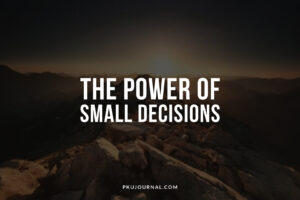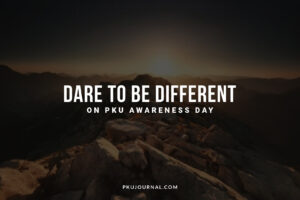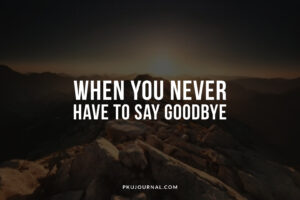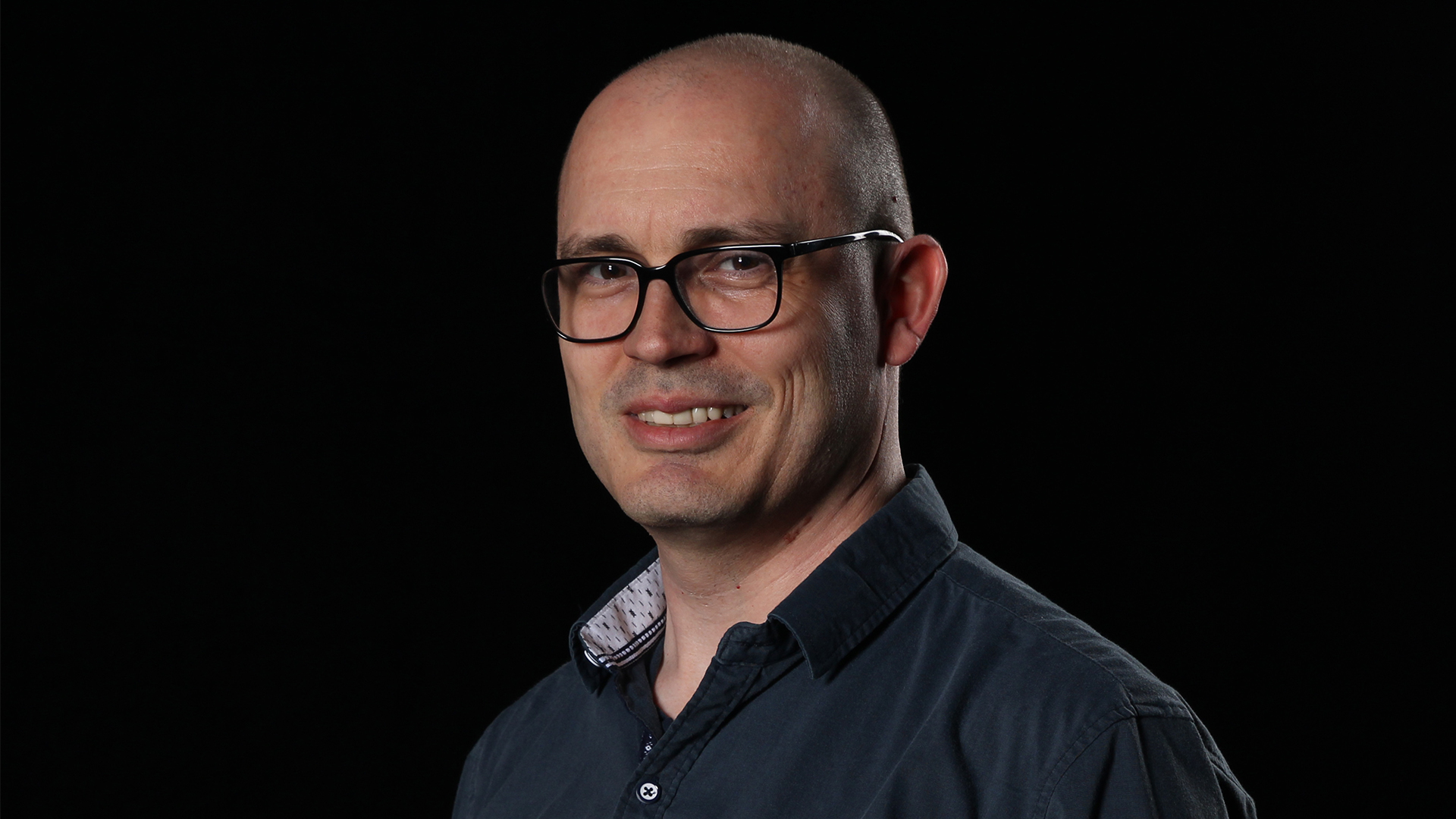In this episode of Never Give Up, I delve into the impact of being a healing presence in the rare disease community. I share personal stories, reflections, and a poignant encounter with a remarkable physician that reminded me of the power of empathy and kindness. Join me as we explore what it means to truly care for one another in our journey through life with rare diseases.
The Rare Disease Life: A Global Community of Humanity
On this podcast, I try to speak to as many people in and around the rare disease community as possible. To consider all perspectives… at least as best I can. My perspective? I’m an adult living with Phenylketonuria or PKU. It’s a metabolic disorder, a rare genetic disease that affects how my body metabolizes protein.
But there are many rare diseases. The National Organization for Rare Disorders (NORD) estimates that there are now 10,000 known rare diseases affecting 400 million people globally. So my experience is only one among many. Rare diseases affect infants, children, teens, and adults of all ages.
Besides those of us who have the rare disease, obviously, there are all of those around us who are part of this life as well. That begins, of course, with our parents and grandparents, those who fight for us and advocate for us from day one. Many become their child’s voice because they can’t communicate or advocate for themselves, at least not verbally. I passionately believe that everyone with a rare disease… everyone… is an advocate in their own way.
Just by existing, we make a difference in the world. Not because of what we do, but by our presence in the lives of others… because of who we are.
It does not depend on one’s abilities.
And of course, there are other people in our lives… siblings, friends, and for many of us, our partners.
But there are a couple of other perspectives that I try to consider. And I share ideas for this audience on LinkedIn. And that’s our medical professionals and industry partners—those we encounter in a clinical setting or who manufacture our medications or other resources we need to remain healthy. And even those we who have a rare disease may never encounter personally… those who are researchers, lab workers, public health professionals, or legislative advocates.
I say frequently that “we are one global community.” I mean that. And I’m not just talking about someone with a rare disease or their families, but even those who provide for us medically or professionally in some capacity.
Yes, I consider you part of this community as well. If you are open to that.
Because my life wouldn’t be what it is without all of you.
So today, I want to share a story for you. It’s about a moment last year when I met someone who helped me identify my approach to rare disease advocacy. And he wasn’t even connected to our community.
A physician who reminded me of the opportunity we all have… to be a healing presence in the lives of others.
The Journey to Kansas City
I travel a lot, both for work and for rare disease advocacy.
In fact, as I write this, I’m sitting in the airport in Phoenix, Arizona, waiting for my flight home after filming a video.
I don’t travel as much as some, but I always have to be prepared. Whether for business or advocacy, I don’t know where my journey is going to be. Sometimes they come up quickly.
I’m used to it. It reminds me of when I was younger and working in news, always on standby. There’s a rush I get when I have to drop everything and get focused quickly. Only these days, it’s for commercial projects or for advocacy… generally uplifting. Not reporting on someone’s worst day of their life.
In the fall of 2023, a project at work materialized rather quickly. And on a Friday afternoon, I booked a flight to Kansas City for Monday morning. My assignment—film a presentation with a retired physician who used to teach at our local medical school.
Now, anytime you’re planning a media project, you have a lot of details to consider. You think through the logistics about what video gear you’ll need to take, what filming location you can secure, and what the final edited video— or “deliverables”—will be just to name a few.
Of course, living with PKU, there’s the added step of making sure that I pack my medications in my luggage and that I bring enough in case I’m delayed for any reason—something anyone with any medical condition can relate to.
In the rush to get ready to go, you can forget why you’re going—I don’t mean what you’re going to do, but why you’re doing it.
As a storyteller, I believe you have to connect emotionally to the story you’re trying to tell. Whether it’s a commercial, a short documentary, or even an episode of this podcast… if I don’t feel it—emotionally connect with the material in some way—then I can’t hope for my audience to connect with it.
It requires emotional sensitivity and being willing to go to some deep places in your heart and mind. That’s the way I see it anyway.
Well, in my rush for this trip to Kansas City, I had not slowed down to consider the impact of what I was about to do.
Until I remembered… this retired physician I was about to film… had stage IV cancer.
And in the presentation I would film, he would share part of his legacy… teaching medical students to remember that their patients aren’t just “patients.”
They are human beings.
Seeing the Person Behind the Diagnosis
Am I a patient? Or am I a person?
That may not seem like a big deal to some. Maybe not even some who live with a rare disease. But I’ve talked to enough people to know I’m not alone in this.
There are times when I’ve felt treated not as a person, but as an object. Even when people mean well, they can forget the impact of their actions.
I’ll give you an example. When I was younger—I mean really young, perhaps four or five—I have vague memories of going to my genetics clinic. This is standard practice for PKU. A family physician doesn’t know enough about this rare disease to treat you, so you go to a specialist. Mine was 5 hours away in New Orleans, so a few times per year we would make a weekend trip out of it.
Of course, getting out of school to make a weekend trip to New Orleans was great. I’ve had a lifelong love for visiting the French Quarter. I have very vague memories of being there during the 1984 World’s Fair and seeing the space shuttle Enterprise.
But the clinic visit itself? There were aspects I enjoyed. Others not so much. I liked my doctor. His name was Emmanuel Shapiro. Now, as an adult, I understand that since they were a teaching hospital, those people who trailed in after him were residents. But as a child, all I knew was that instead of having one fun doctor to talk with, I had a dozen intimidating people staring at me in lab coats.
After a few years, those visits made me feel like a science experiment.
Fast forward about 10 years. I was 15 when I started playing guitar. And I have a vivid memory of being in a clinic visit sometime after that. Not only were the residents surprised to hear me speak and have good motor reflexes, I vividly remember everyone scribbling furiously when my dad casually mentioned that I started playing guitar.
Again, as an adult, I understand the context. Those who struggle with the PKU treatment experience impaired executive functioning.
But as a teenager, I already felt different. But being treated as if I had done something groundbreaking by learning how to play a D chord… it was a bit much.
Don’t get me wrong… these are minor things. I get that. But here’s the principle…
If someone tells you how they feel, then that’s how they feel.
And when you feel like you’re the subject of a science experiment, it means you feel like less of a person.
A Healing Presence in Action
So, let’s turn back to that project I was filming in Kansas City. I rented a hotel conference room where the doctor and his wife met me for our filming session. As soon as we spoke, I knew I was in the presence of a remarkable person.
His name was Doctor Jay Marion. And he radiated kindness. He didn’t treat me as just the hired crew there to record a video. He shook my hand. He looked me in the eyes. And made me feel valued.
I knew immediately he must have been an excellent physician.
And his lecture was fascinating. He talked about how to take inspiration from the humanities to be a better humanitarian.
Naturally, I perked up. Because for as long as I can remember, I’ve been drawn to the humanities. To storytelling. Art. Music. Poetry. Novels. Plays. Comedy. Tragedy. History. Philosophy.
Ok, I can easily get sidetracked here. I get excited about this stuff. Because this is a subject I’m passionate about.
We often treat education as information we learn to do a better job.
Rather than principles for being a better person.
The humanities teach you how to be a better human.
And long after you are finished with school, no matter your level of formal education…
The humanities are an endless supply of inspiration on how to live a better life.
Because… the best stories…or the best art of any kind… they teach you empathy.
How to understand and experience the feelings of others.
How to see things from another point of view.
How to experience a world more beautiful than you ever imagined.
But back to my encounter with this physician teaching me about the humanities. Dr. Marion acknowledged something that was to me very profound.
Doctors want to cure everyone, but they can’t. They can, however, be a healing presence in the lives of their patients.
This is what patients want…
Someone who cares.
Legacy Through Presence, Not Just Profession
Here is a man with stage IV cancer… a physician who already treated his patients like people… with a new appreciation for the patient’s perspective.
He spoke with authority.
As I listened to him, I thought of all of the people in the rare disease community struggling to receive a diagnosis. They’re often told “it’s all in your head.” They feel invisible.
But also, I thought of those in the PKU community as well. Sometimes I wonder if there’s an assumption in the broader rare disease community that because we have treatment for PKU everything’s good for us… if PKU is held as a success story but with nothing left to achieve.
But as I’ve said before on this podcast, what good is a treatment that you can’t access?
Others struggle. Tremendously. I know anyone in the metabolic disorders community can identify with this.
The foundational treatment for PKU is dietary therapy. It’s not something that “solves” anything. It reduces the impact of the worst consequences of PKU, but research has shown that there are clear differences in the brains of those with and without PKU… even in those well-treated since birth. PKU researchers are still working to understand this.
And yes, there are newer treatments… that don’t work for everyone. So dietary therapy is still the foundational treatment.
The problem isn’t “solved” and our work isn’t “done” when 80 percent of adults living with PKU in the United States are lost to care. And many still experience impaired executive functioning from high phenylalanine levels… because the low-protein diet for many can be very very hard. I don’t even like using the word “diet” anymore because that implies that you have a choice.
Our choice with every bite of food is between brain damage and no brain damage.
I know we aren’t alone in our struggles. But this is the story for many people with PKU who feel invisible. And many across the rare disease community feel invisible as well. What can be done to address this?
As my new friend in Kansas City would say… “Be a healing presence.”
Be a Healing Presence
Be a healing presence. I love that so much.
As soon as I heard it… it was like something deep inside just screamed “Yes!”
I thought back to those I’ve met over the years who have radiated this kind of presence.
I don’t have solid memories of this, but that’s the way I felt as a child about my PKU doctor… Dr. Shapiro. Even though I was intimidated by all those residents, I liked him.
I also thought of a dear friend of mine, a reporter I used to work with and my storytelling mentor for over 20 years. His name is Rick Rowe and I grew up watching him on TV. We worked together every day for over a year doing live shots for the morning show, and he’s the best storyteller I’ve ever met. At first, I was really intimidated. “That’s Rick Rowe!” But he never made me feel that way.
The way I learn is by observing others and trying to emulate their character. I watched the way Rick treated our viewers. People would come up to him and want to chat again because “That’s Rick Rowe!” And when I say he made time for everyone… he made time for everyone. He took time out of his day to make everyone feel valued… and loved.
I never forgot that.
On January 13, 2005, Rick and I covered the aftermath of a tornado outside of Junction City, Arkansas that struck the night before. This is the story we turned that day, from the midday broadcast. Rick kept his cool and told an emotionally sensitive story about breaking news that was different from the way many cover the news. And I always remembered that.
And there’s another person I remembered who embodied this kind of gentle spirit.
A couple of years ago, I was at a doctor’s appointment and mentioned that I have a rare disease. Doctors are typically taught this phrase: “When you hear hoof beats, think horse not zebra.”
But we in the rare disease community know this phrase… because we are the zebras! And it’s our mascot… literally… so much of online rare disease culture centers around this symbol of the zebra.
So, I told that doctor, “Sometimes you really are a zebra.”
And his response was priceless: “Yep! And enjoy your stripes!”
That’s one of the best responses I’ve ever heard from a doctor… empowering the patient to embrace what they have rather than feeling like something is wrong with them. And taking a moment to connect with the patient as a person… not just another business transaction.
That is the essence of being a healing presence.
A Newborn Screening Story
Now, I knew I was going to turn this encounter in Kansas City into an episode at some point. But maybe one of my shorter episodes, I produce in between these full seasons of longer stories.
Well, something happened recently that reminded me of this, and so I revised my plans for the season.
But first, let me tell you about my friend Kala. We met in person at the 2022 National PKU Alliance Conference, but we had been connected on Facebook for a while.
Her son Braxton was born in 2020 during my hiatus from social media. So when we met in person, I didn’t know her well. I knew her name, but we hadn’t really had a chance to connect. She told me that she had seen my work shortly after receiving her son’s diagnosis. My first response? I thought to myself, “I can’t believe people are still seeing that video from 2011.” I’ve heard this from new parents countless times and it means so much every time…
Anyway, early in 2024, she posted about her son’s diagnosis with PKU after receiving newborn screening. The first call came in… from a regular doctor’s office from people who don’t know about PKU. They said it was likely a false positive… something said to many many families right before they receive a confirmed diagnosis. So, they went to the doctor for more bloodwork and then were told to go home and wait for confirmation. Kala described that first weekend waiting:
“We waited the whole weekend for a call from someone. Anyone! They left two parents in the dark. I think the call should have come from Braxton’s provider or at least the provider on call. Not a nurse that could do little to reassure me because she received no education on this in nursing school. Better yet, a follow-up call from the on-call genetics and metabolics department… just to give us something.”
Giving people news matters. But how it’s given to them also matters. Because I guarantee you, these families remember this call for the rest of their lives.
One of my dietitians says that when she used to make these calls, she would always take a moment to gather herself and consider her words because she knew the other person would remember it forever.
That’s being a healing presence.
And of course, my new friend in Kansas City taught me about all of this. After I filmed Dr. Marion’s presentation, we took a few moments to connect… as human beings… on different journeys in life but certainly kindred spirits. He weighed and measured his thoughts carefully, recognizing the impact of every word he spoke.
I told him that I have PKU and he was surprised. Most doctors never encounter a single case. We spoke about newborn screening and I shared one of my episodes with him. I wasn’t sure if he would listen to it, but he did. And a couple of hours after we had parted ways, he texted me an encouraging message that I won’t forget and he became a regular listener.
My encounter with him reignited a passion for something I used to believe…
We have the power to change things not only with our actions but with our words. We express ideas. We speak truth to power. But also, we have the capacity for tremendous change in others if we allow ourselves to be transformed, speak encouraging words, and become a healing presence in their lives.
A Story Written with Time and Reflection
I began writing this story in January of 2024. It’s now March and I’m updating this script to share something I learned today. Dr. Marion died last week. The medical school shared the news this morning on Facebook. And I’ve been sad all day.
We only met once and very briefly, but even a brief encounter can have a profound impact. Dr. Marion was a kind, wise man who knew that he was facing death and he chose every word carefully. He spoke deliberately. And even though his voice was weakened by cancer, he spoke powerfully.
And I will cherish our conversation. Because he taught me what it means to be a healing presence. And he gave me a new perspective about my work in advocacy.
People in the rare disease communities are hurting. And each of us has an opportunity to be a healing presence in the lives of others. On the other end of every patient encounter… every research study… every speech… every social media conversation…
Is a human being.
And you will never know the impact you can have if you just take time for them and show them simple kindness.
The rare disease life can be incredibly complex. The challenges of one community are not the same challenges for another. But the one constant…
Is that we are people.
People trying to hold on to hope when life is often difficult.
We are people who spend much of our lives in doctor’s appointments, on phone calls with insurance companies, giving of our time and energy to clinical trials or serving non-profit organizations. And we just want to know… that someone is caring for us as people. That we aren’t just “patients.”
As a communicator, I am very deliberate in the words that I choose. And I am choosing to no longer refer to myself as a “patient.” Not that it’s incorrect. I am, of course. But that’s not all I am.
I am a person. A human being.
Someone trying to navigate through my rare disease life.
And I believe that all we want, all we truly care about is knowing that someone has our backs.
There’s only so much a physician can do to heal the body. I realize that. But they can have a profound impact on our hearts and minds by being a healing presence in our lives. The same is true of any professional in this community.
You can make a tremendous change by listening first… truly listening. And even when you are powerless to affect a specific course of change, you can demonstrate compassion by connecting as human beings.
My conversation with Dr. Marion encouraged me greatly… I may not be a physician, but I am an advocate. And I can choose to be a healing presence in my work. In every conversation, every piece of media I produce, in every interview I film.
I can choose to see those living with a rare disease not as “patients” but as people.
I can be a healing presence in the lives of others by caring for their hearts and minds no matter where I go and who I meet.
And so can you.
This is not the domain of professionals only but of everyone.
We help others.
We use words to heal, not to harm.
And we build relationships that last…
And together we never, never, never give up.











Leave a Reply